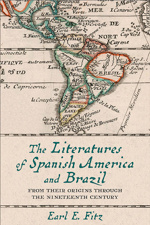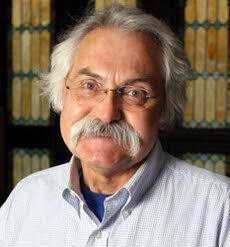Today, we are happy to bring you our conversation with Earl E. Fitz, author of The Literatures of Spanish America and Brazil: From Their Origins through the Nineteenth Century.
What inspired you to write this book?
I was inspired to write this book because I have long believed that to understand Latin American literature properly, one had to appreciate both Spanish American literature and Brazilian literature. Both have produced marvelous writers and both exemplify the greater American experience, in all its turmoil, potential, and diversity. Too often, when people think of Latin America, they think only of Spanish America and not Brazil. I want to change that. Latin American literature has two great traditions, the Spanish American and the Brazilian, and we need to know them both.
What did you learn and what are you hoping readers will learn from your book?
What I want the reader to learn is that Brazilian literature, which dates from 1500, is quite different from its better known cousin, Spanish American literature. This is so for two reasons: first, Portugal had a different political and cultural history than Spain had (as I discuss in the book), and, second, colonial Brazil (owing to its Portuguese heritage) was much more open to foreign ideas than colonial Spanish America was. This openness to the world has been a basic characteristic to Brazilian writing since its earliest days, and it makes for some fascinating comparisons with the history of Spanish American writing.
What surprised you the most in the process of writing your book?
In writing this book, I was most surprised about how compelling were the many comparisons that can be made between the literatures of Spanish America and Brazil. But I was also surprised at the number of comparisons that can be made involving Spanish America and Brazil and the literature of the United States, which begins some one hundred years later than Spanish America and Brazil do. This is why I take pains to point out some of these hitherto unexplored connections. Here in the Americas, we are more tied together by history and experience than we think, and it behooves us to learn more about each other. This is part of our common future.
What’s your favorite anecdote from your book?
I think my favorite anecdote from the book is the conversation that two of America’s greatest writers, Nicaragua’s Rubén Darío and Brazil’s Machado de Assis must have had when they met briefly at the end of the nineteenth-century at the first Inter-American conference. Although we do not know the details of their chat, we can imagine what they might have said, about their work, about the nature of Latin American literature, and about American literature in its comparative and hemispheric sense. The latter was a topic of keen interest to both of them, and it underscores another argument I make, namely, that it is Latin American literature (both Spanish America and Brazil together) that constitutes the foundation of Inter-American study.
What’s next?
Currently, I am finishing up volume II of this same study. In volume II, I apply the same comparative optic and examine the development of literature in Spanish America and Brazil from 1900 to the present day. It is intriguing to watch Spanish America and Brazil grow as modern nation states, which they do as allies but also as competitors. As in the first volume, I call attention to the many connections between modern Latin American literature and the United States. I also discuss why, today, writers and texts from both Spanish America and Brazil are so popular with readers of World Literature. Clearly, the literature of Latin American literature has a special appeal to readers all around the world, and I offer some suggestions as to why this is the case.





